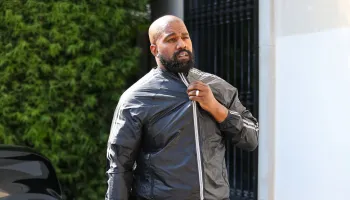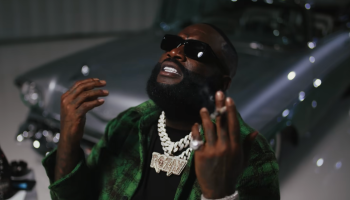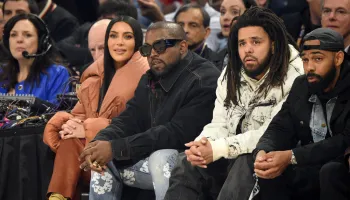I was invited this week to speak to the Stanford University NAACP about whether or not college athletes should be paid. When I am asked whether I think college athletes should be compensated for their labor, I simply respond to the question with another question: “Why shouldn’t they get paid? Did they not earn the money?
Is someone else earning money from their labor? Is the labor of the athlete essential to the revenue-generating process?” That helps us to understand how insane it is that athletes earn billions of dollars for coaches, but aren’t entitled to any of that money for themselves. I’ve seen race horses get better deals than that.
When you answer a simple question with a simple answer, you find that the issue that once seemed so complicated is not nearly as difficult to figure out as one might imagine. Let’s break the process down, shall we?
[More]
The NCAA earns more money during March Madness than the Super Bowl and the World Series. Tickets can be sold for the Final Four for as much as $8,000 dollars apiece. Coaches and their families get to fly to games on private jets and use their massive salaries to buy mansions, yachts and fancy cars. That money doesn’t fall out of the sky.
It comes from corporations paying millions of dollars to advertise to the massive audience that shows up to view the show. Is the audience there to see the coach? Probably not. I humbly suggest that the audience watches the game to see the big, tall athletes run up and down the floor. In fact, you could probably still draw a big audience if the athletes showed up without the coaches.
But you could never draw an audience if the coaches showed up without their athletes. Thus, it is established: watching athletes is what draws the audience, which is what draws the ad revenue. So, I ask again: Why are the families of athletes not allowed to negotiate for a fair share of this money?
Let’s break down some of the quick issues that come up when one discusses the NCAA and why athletes should or should not be paid:
First, the issue is actually one of labor rights. Athletes are not the ones who choose to be paid with just a scholarship. They are forced into that style of payment because the labor market has been artificially rigged to control their income and labor options. Congress allows all the universities across America to form a coalition (called the NCAA).
Members of this coalition have agreed to only pay athletes with scholarships under threat of severe punishment if they deviate from the agreement. This style of action would be illegal in nearly any other industry in America and allows universities, coaches and administrators to profit handsomely by keeping athletes from demanding a fair share of the money.
The NCAA is allowed an exemption from anti-trust laws to maintain their cartel because they’ve convinced Congress that they are focused primarily on education and nothing more. They argue that money doesn’t matter and that they exist almost solely for the well-being of the athlete. That is why they spend millions of dollars running those commercials telling you about all the great things they do for college athletes.
The problem is that the NCAA has no problem giving $30 million dollars to coaches like John Calipari at Kentucky, who has been found guilty of numerous NCAA violations and doesn’t have a very high graduation rate. Also, in my experience as a college professor, I’ve seen athletes pulled out of class for games, and forced to practice so much that they barely have time to study.
In fact, many athletes have their scholarships taken away when they can no longer play sports or compete at the level that their coaches expect. Many athletes are expected to put their athletic performance ahead of their academic ones.
My argument is not that we should force universities to write a paycheck for athletes. I guess that would be too much for them, even though they have no problem pumping out several million dollars per year to pay a coach who doesn’t care much about academics. Instead of paying the athletes, perhaps we should simply decriminalize compensation.
Why have we been convinced that a star athlete, worth $10 million dollars or more to his university every year, should be considered a terrible person because he takes $1,000 dollars from a booster to pay his mother’s rent? Do coaches have to beg for money to pay for their own rent? If not, then why have we decided that athletes and their families should be treated as second-class citizens?
Here’s the real deal on the NCAA:
Part of the reason they can get away with their billion dollar sweatshop is because most of the people being exploited are Black. Most of the people watching March Madness don’t realize the billions of dollars getting passed around, and most of them don’t even care. Also, most of the audience thinks that those Black kids should be happy with what they get, since a natural jealousy can rise up when people see a young Black man with more resources than they feel he deserves.
While they certainly have no problem watching a coach buy mansions and private jets from coaching a championship team, they have serious issues seeing a 20-year old Black kid in a Bentley.
The NCAA will change when the athletes get informed on the exploitation and gain the courage to stand up against tyranny. Additionally, legal action from concerned citizens (National Black Law Student Association, did you hear that?) may help pave the way to challenge the lack of constitutional fairness of many of the NCAA’s excessive rules and regulations. This is a matter of equity and although a scholarship is nice, athletes should have the same labor rights as coaches.
Dr. Boyce Watkins is a Faculty Affiliate at The College Sport Research Institute and the founder of ALARM: The Athlete Liberation Academic Reform Movement. For more information, please visit www.BoyceWatkins.com.















